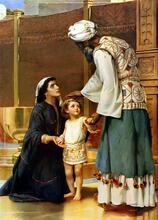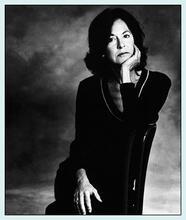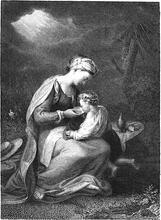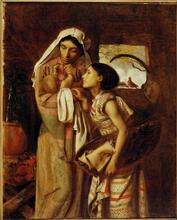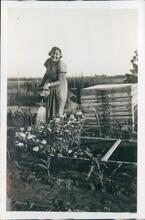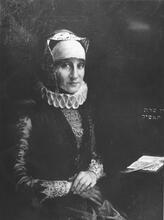Hannah: Bible
Hannah is the second and barren yet preferred wife of Elkanah. She suffers silently in this predicament but eventually goes to a temple and prays fervently. She promises to return her child to YHWH if she is able to have a male baby, showing that she is most focused on securing her position in the community. While praying, her actions are misinterpreted and viewed skeptically by Eli the priest, but she is ultimately granted a son, Samuel. Her narrative emphasizes the importance of fertility and childbirth in Israeli artistic narratives and presents a portrayal of an independent and resourceful woman.
Marriage and Barrenness
The narrative in 1 Samuel 1–2, in which Hannah is protagonist, is set in the late premonarchic period (eleventh century B.C.E.). It opens obliquely with the introduction of her husband, Elkanah, who is identified by name, location, and extensive genealogy. Elkanah’s two wives conclude the exposition, and they are presented without genealogy. The significance of the women lies in their relationship to Elkanah and in their childbearing capacity: “The name of one was Hannah, and the name of the other Peninnah. Peninnah had children, but Hannah had no children” (1:2). The use of chiasmus (the inversion of elements in two parallel phrases) underscores the standing of the women: Hannah is the primary wife, yet Peninnah has succeeded in bearing children. It also foreshadows the tension in the relationship between the women, Hannah’s status as primary wife and her barrenness recall Sarah and Rebekah, and an implicit comparison with these earlier women underlies the entire narrative. The matriarchs sought the recognition of motherhood through surrogate females, a solution that brought more grief than honor.
Against this background, the reader of the Hannah narrative may suppose that Elkanah took Peninnah as second wife because of Hannah’s barrenness, but Hannah, unlike Sarah and Rebekah, never doubts her capacity for motherhood. Although vexed by Peninnah, Hannah does not enter into the rivalry that characterizes the matriarchal narratives. With a loving (but tactless) husband and a jealous rival wife, Hannah keeps her counsel and her suffering to herself.
At the annual sacrifice at the major shrine of Shiloh, Hannah’s predicament is intensified by her husband’s allocation of sacrificial portions, one to each of his wives and children: the value of the women is demonstrably enhanced by their child-bearing capacities. Though he gives a generous portion to Hannah, this gesture still emphasizes the fact that she has borne no children and thus does not comfort her. When she weeps and does not eat, Elkanah tries to assuage her misery with a series of “Why” questions, concluding with “Am I not more to you than ten sons?” (1:8). This “consoling” might be understood as a touching gesture by a sensitive husband. Or his words might convey the image of an insensitive man who does not realize how greatly his wife wants to bear children. Elkanah’s chain of rhetorical questions does not allow Hannah an opportunity to answer, and she wisely remains silent to his last question. Not granted the dignity of her suffering, Hannah suffers even more under Elkanah’s “comforting.”
Prayer for a Son
At Shiloh, the scene of her acute isolation and Peninnah’s tormenting, Hannah turns to YHWH in the temple. She prays fervently, vowing that if YHWH will grant her a male child, she will give that child back to YHWH after weaning him. The desperation of Hannah’s vow indicates that merely bearing a male child would establish her in the community; she would forgo the joys of raising him. Her vow does assume that within the social structure of early Israel, when women made vows, their husbands had to uphold them.
Hannah’s prayer is observed by Eli the priest, who presumes her moving lips indicate that she is drunk; thus, Hannah is wrongly accosted (and this time wrongly judged) by a second male character in the story. At a time when prayer was said aloud, Hannah’s personal and private prayer was an innovation and regarded skeptically by the priest. Her muted voice may represent the “muted” position of women: she retreats from the control of religious and social authorities—husband and priest—into herself, to offer a prayer that they can neither hear nor understand. She assumes that God can hear and respond to a woman’s prayer. Hannah answers Eli humbly and poignantly. In response, the priest offers no apology—merely trite phrases.
Motherhood
Hannah’s prayers are answered by YHWH, who “remembers” her (1:19), much as he remembered Rachel, suggesting that women’s wombs are controlled by the deity, who acts upon them by closing or opening. Upon birth, it is Hannah who chooses a name for her son, for women’s authority over children was often expressed by their naming of their offspring. She calls him Samuel, because she asked God (El) for him. Elkanah is not mentioned in this action. At the time of the next pilgrimage to Shiloh, strengthened by the self-assurance of motherhood, Hannah chooses to remain at home until the boy is weaned. Hannah’s exchange with her husband on this occasion takes on an entirely different tone. She initiates the dialogue and establishes the conditions under which she will resume travel (when the boy has been weaned), and Elkanah offers a mere confirmation of her words.
When Hannah finally does relinquish her son to YHWH, she brings him to Eli, with significant sacrifices to YHWH, and she reminds the priest of her earlier prayer. The earliest translation and transmission traditions (Septuagint and 4Qsama) show “patriarchalizing” of the text in removing Hannah’s agency in performing the sacrifice, depriving her of a cultic role that legitimately belongs to her. In the Hebrew text, Hannah presents the child and also the sacrifices.
Later Stories and Significance
A poem of thanksgiving, the Song of Hannah (2:1–10) (and a brief digression concerned with Eli’s sons), interrupts the narrative. The attribution of this poetic utterance to Hannah distinguishes her among biblical personages. Her song is essentially a hymn of praise to YHWH for good fortune, and the theme of reversal includes reference to a previously barren woman. The song also includes many themes of Israel’s national culture: defeat of enemies and creation, battle and YHWH’s relationship to Israel’s leaders, wisdom and storm-god images. Fertility and childbirth are thus included as equal in importance to other motifs and worthy of Israel’s singers.
Hannah’s narrative concludes with a comment on her annual visit with her husband to offer the yearly sacrifice. At that time, her motherhood is emphasized: it is not “Hannah” but “his [Samuel’s] mother” who makes a “little robe” and brings it to him at Shiloh (2:20). Elkanah and Hannah receive the blessings of Eli the priest, who prophesies that she will have other children because of her vow to YHWH. Indeed, Hannah’s story concludes with fulfillment of YHWH’s blessing in the form of three additional sons and two daughters.
Hannah’s image is secure indeed: she is recognized as mother of Samuel—who becomes a prophet, judge, and king-maker—and as a good woman. She proves herself independent and resourceful, never abandoning her goals or demeaning others as a means to achieve them; she demonstrates women’s activity in family ritual practices; she discloses social responsibility by making a vow that is upheld by her husband; and she links the realms of private and public religious life by vowing dedication of her son and by bringing her own sacrifice to YHWH in fulfillment of that vow.
Bird, Phyllis A. “Images of Women in the Old Testament.” In The Bible and Liberation: Political and Social Hermeneutics. Edited by Norman K. Gottwald, 252–288. Maryknoll, New York: 1983.
Brenner, Athalya, and Fokkelien van Dijk-Hemmes. On Gendering Texts: Female and Male Voices in the Hebrew Bible. Leiden, Netherlands: 1993.
Hackett, Jo Ann. “1 and 2 Samuel.” Women’s Bible Commentary, edited by Carol A. Newsom and Sharon H. Ringe, 85–95. Kentucky: 1992. Expanded edition, 1998.
Klein, Lillian R. “Hannah: Maligned Victim and Social Redeemer.” In A Feminist Companion to Samuel and Kings. Edited by Athalya Brenner, 77–92. Sheffield, England: 1994.
Meyers, Carol. “Hannah and Her Sacrifice: Reclaiming Female Agency.” In A Feminist Companion to Samuel and Kings. Edited by Athalya Brenner, 93–104. Sheffield, England: 1994.
Ibid. “The Hannah Narrative in Feminist Perspective.” In Go to the Land I Will Show You: Studies in Honor of Dwight W. Young. Edited by Joseph Coleson and Victor Matthews, 117–126. Winona Lake, Indiana: 1996.
Meyers, Carol, General Editor. Women in Scripture. New York: 2000.


